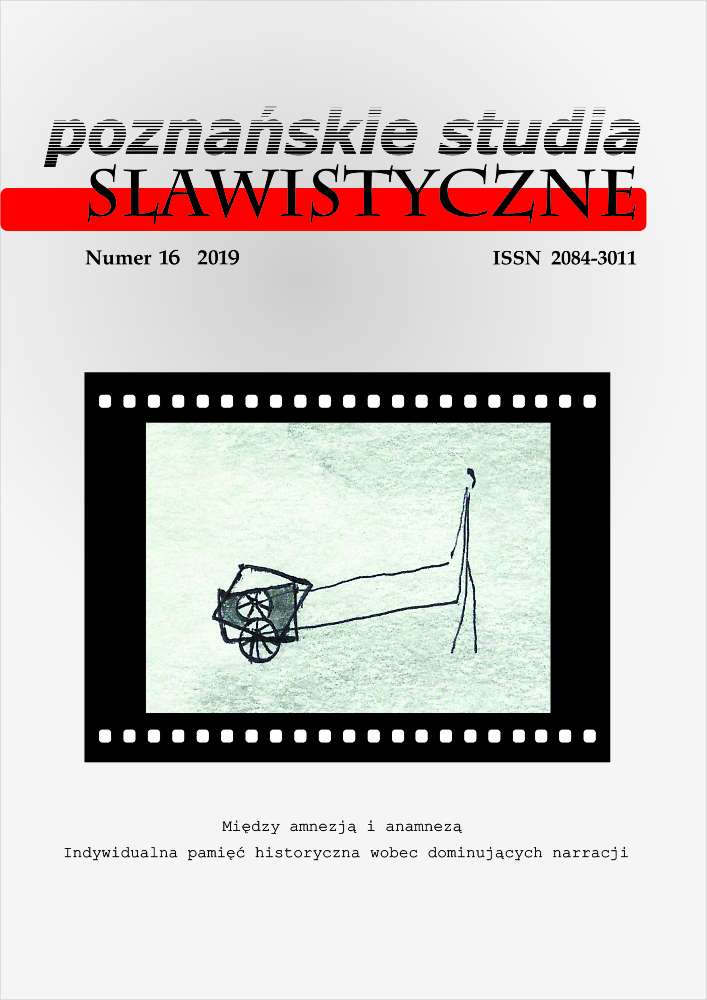Abstract
The book of essays Smrtni grijesi feminizma (The Deadly Sins of Feminism), written by Slavenka Drakulić, and Irena Vrkljan’s novel Svila, škare (The Silk, the Shears), both published in 1984, became the samples of feminist activism and the poetics of l’écriture féminine in Croatian literature. Considering their generic aspects and their narrative strategies focused on revealing the conflict between public/historical/political and personal/everyday/trivial, in our paper we will discuss Vrkljan’s novel as outstanding example of the emancipatory changes in the cultural field of the 1980’s. “Trivial as political” in Slavenka Drakulić’s writing, articulated through Irena Vrkljan’s autobiographical narrative, incites the emancipatory power of l’écriture féminine that simultaneously reflects the Other in itself, produces its own difference and writes without inscribing itself. This type of women’s writing, as previously defined by Hélène Cixous, is presented in Irena Vrkljan’s text as writing its own life that is “always in-between” and that undermines declared democratic values as much as the politics of literature, as understood by Jacques Rancière. Revealing discordances between poetic and social hierarchies, women’s writing makes changes in the partition of the visible and the sayable, in the intertwining of being and writing, body and words.References
Biti, V. (2000). Pojmovnik suvremene književne i kulturne teorije. Zagreb: Matica hrvatska.
Cixous, H. (2012). The Laugh of the Medusa. U: Critical Theory: a Reader for Literary and Cultural Studies. Ur. Robert Dale Parker. New York: Oxford University Press, str. 242–257.
Čale Feldman, L., Tomljenović, A. (2012). Uvod u feminističku književnu kritiku. Zagreb: Leykam International.
Drakulić Ilić, S. (1984). Smrtni grijesi feminizma. Zagreb: Znanje.
Matanović, J., Vrkljan, I. (2004). Pisanje kao odbacivanje bremena. „Sarajevske Sveske“ br. 06/07.
Milanja, C. (1996). Hrvatski roman 1945–1990. Zagreb: Zavod za znanost o knjiže¬vnosti Filozofskog fakulteta Sveučilišta u Zagrebu.
Milanja, C. (2000). Hrvatsko pjesništvo od 1950. do 2000. Zagreb: Zagrebgrafo.
Moi, T. (2007). Seksualna/tekstualna politika. Zagreb: AGM.
Nemec, K. (2003). Povijest hrvatskog romana od 1945. do 2000. Zagreb: Školska knjiga.
Rancière, J. (2008). Politika književnosti. Novi Sad: Adresa.
Slama, B. (1983). Od „ženske književnosti“ do „pisanja u ženskome rodu“. „Republika“ vol. 39, str. 85–106.
Stavrakakis, Y. (2012). Challenges of re-politicisation: Mouffe’s agonism and artistic practices. „Third Text“ 26, 5, str. 551–565. https://doi.org/10.1080/09528822.2012.712771
Šafranek, I. (1983). „Ženska književnost“ i „žensko pismo“. „Republika“ vol. 39, str. 7–28.
Visković, V. (1988). Pozicija kritičara: kritičarske opaske o suvremenoj hrvatskoj pro¬zi. Zagreb: Znanje.
Vrkljan, I. (1966). Soba, taj strašan vrt. Beograd: Prosveta.
Vrkljan, I. (1984). Svila, škare. Zagreb: Zora.
Zlatar, A. (2004). Olovka pamćenja. U: Vrkljan, I. Naše ljubavi, naše bolesti. Zagreb: Naklada Ljevak, str. 9–19.
Zlatar, A. (2006). Soba, kuhinja, vlak. U: Vrkljan, I. Sabrana proza 1. Zagreb: Profil, str. 5–29.
Zlatar, A. (2008). Podatni materijal pamćenja. U: Vrkljan, I. Svila nestala, škare ostale. Zagreb: Naklada Ljevak, str. 109–114.
License

This work is licensed under a Creative Commons Attribution-NoDerivatives 4.0 International License.

